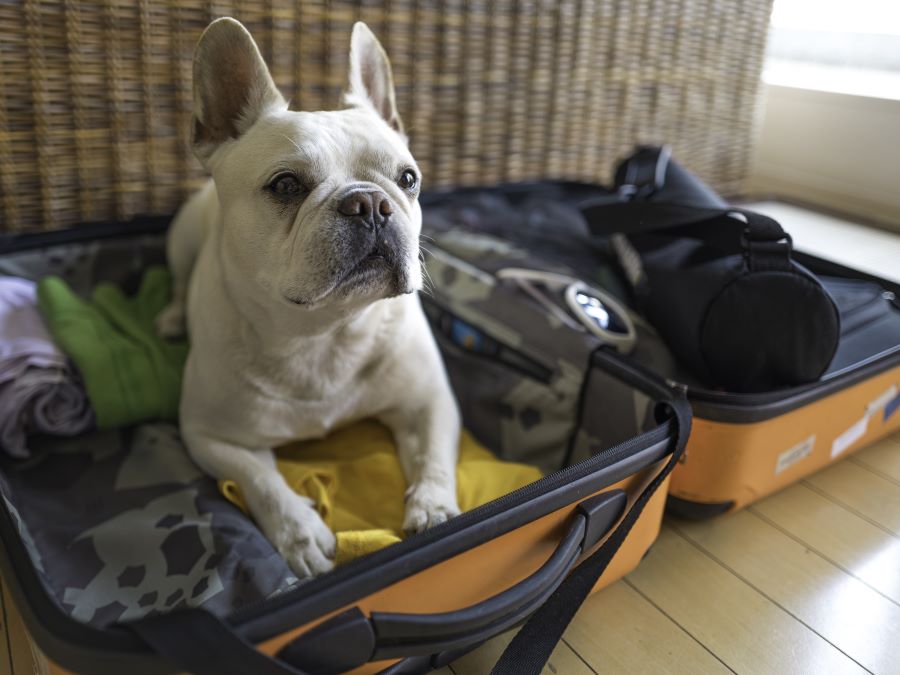
Benefits of Domestic Insurance for Australia's Sporting Events
17 July 2023 by Laura Sedgwick
This year is proving to be a sports aficionado’s dream with 2023 promising a jam-packed agenda. Whether it’s the Melbourne Cup, the FIFA Women’s World Cup, Footy Grand Finals or Hamilton Island Race Week, there’s something for every sporting enthusiast.
With so many popular sporting events taking place in cities across the country and expected to attract thousands of Australians, Southern Cross Travel Insurance (SCTI) is encouraging travellers to take out domestic travel insurance as popular sporting events take place in cities across the country.
Recent research conducted by SCTI showed that 58 per cent of Aussies that travelled interstate in 2022, reported experiencing an issue with their travel or travel plans.
Aussies intending to enjoy the myriad of fantastic sporting events taking place this year could be forgiven for thinking taking out domestic travel insurance for their trip isn’t necessary, says Southern Cross Travel Insurance CEO Jo McCauley.
“Domestic travel insurance is often overlooked by travellers. However, since emerging from the pandemic, travel disruption in Australia has remained steady and when you add popular sporting events into the mix, the risk of disruption is likely to increase due to the sheer numbers of travellers moving around the country.”
SCTI data shows that the most common factors resulting in a domestic travel insurance claim are changes to customers’ travel plans before or during their journey which account for 36% of claims paid this year to date. This is followed by claims relating to rental car payments (14%) and lost personal items and baggage (11%).
“We’re also seeing claim costs for domestic travel become increasingly expensive with the average claim payment for domestic claims exceeding the costs for international claims. Our average claims payment for domestic travel this year is $1,505 compared to only $1,446 for international travel related claims across the same period,” says McCauley.
“Despite the increase in travel costs and consistent appetite for domestic travel in Australia, we’re not seeing the uptake of domestic travel insurance that we anticipated post-Covid. I think this is largely due to the fact that life has returned to ‘normal’ and many Aussies don’t think it’ll happen to them. But our data suggests otherwise.” says McCauley.
Many people don’t realise that some domestic travel insurance policies, including SCTI’s, provide an extra benefit which includes cover for ‘special events’ such as weddings, concerts and ticketed sporting events. This means that if it’s likely a customer will miss their special event as a consequence of unexpected delays, SCTI could cover the additional costs (up to $3,000) of alternative transport options to get the customer there faster, to prevent them from missing their event.
Some of this year’s most expensive domestic travel claims include a customer that had to be urgently admitted into hospital with a blood infection, which resulted in them having to cancel their travel plans, costing over $10,000. Another claim related to a customer that broke their arm and was unable to go on the trek that they had booked. This resulted in travel cancellation costs of more than $4,000, which they were able to recoup through their domestic travel insurance policy. Finally, a customer hit a kangaroo while driving a rental car and their travel insurance covered them for over $3,000 worth of damage to the vehicle.
“I think what these examples highlight is the value of domestic travel insurance; both before you head on your trip, as well as when you’re on your way. Two out of the three examples involved customers who unfortunately had to make claims before they’d even packed their bags!”, says McCauley.
Another benefit of SCTI’s domestic travel insurance policy is cover for rental car excess.
“If someone hires a vehicle and the vehicle is damaged or stolen, an excess of thousands of dollars can be charged. Vehicle rental companies will often recommend customers pay an additional daily fee to reduce or waive this excess and this fee can quickly add up. Many Australians are unaware that purchasing domestic travel insurance can be much more cost-effective than paying for excess reduction directly through a rental vehicle company,” added McCauley.





